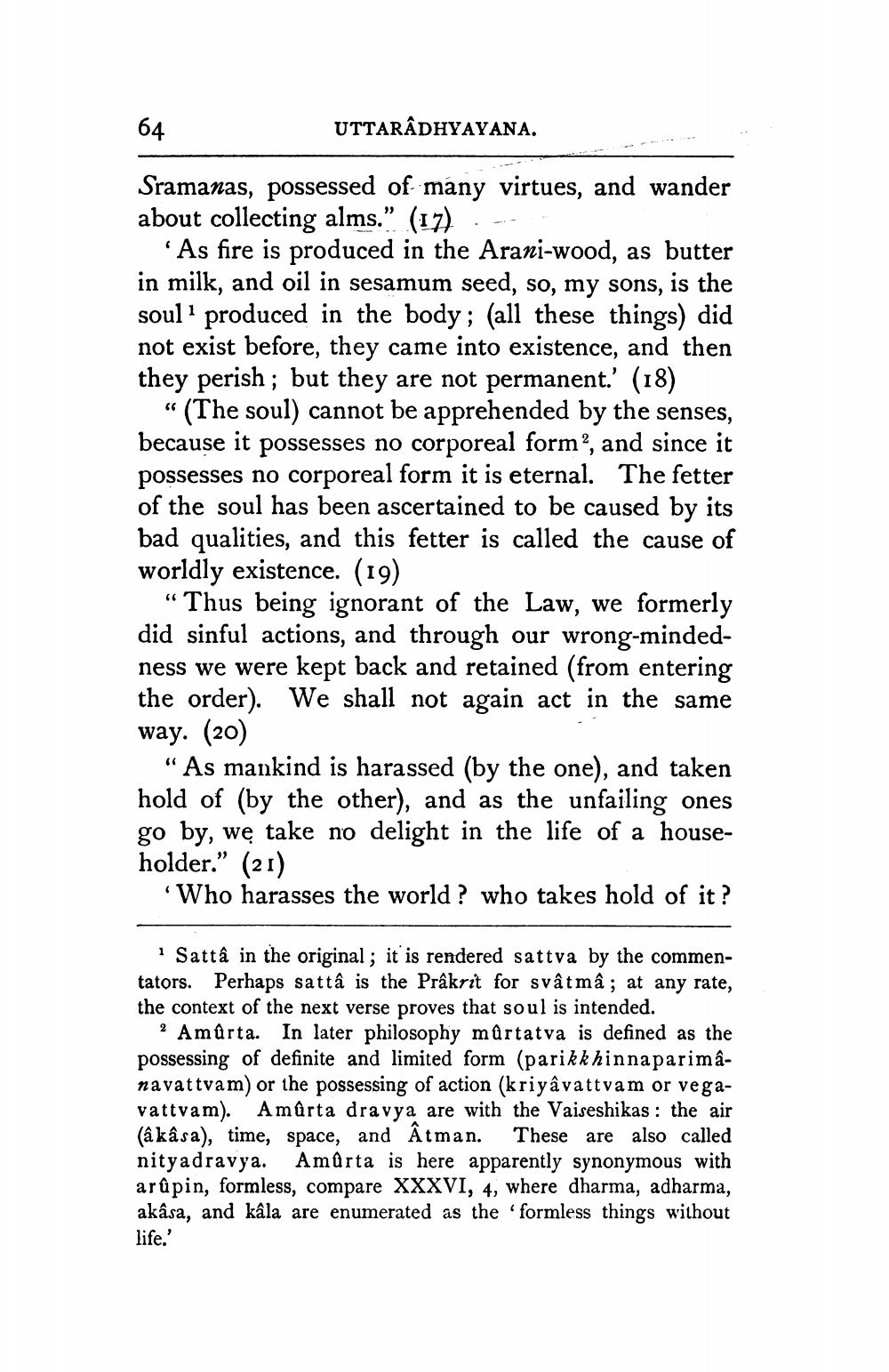________________
64
UTTARADHYAYANA.
Sramanas, possessed of many virtues, and wander about collecting alms.” (17).
"As fire is produced in the Arani-wood, as butter in milk, and oil in sesamum seed, so, my sons, is the soul produced in the body; (all these things) did not exist before, they came into existence, and then they perish; but they are not permanent.' (18)
“(The soul) cannot be apprehended by the senses, because it possesses no corporeal form?, and since it possesses no corporeal form it is eternal. The fetter of the soul has been ascertained to be caused by its bad qualities, and this fetter is called the cause of worldly existence. (19)
“Thus being ignorant of the Law, we formerly did sinful actions, and through our wrong-mindedness we were kept back and retained (from entering the order). We shall not again act in the same way. (20)
“As mankind is harassed (by the one), and taken hold of (by the other), and as the unfailing ones go by, we take no delight in the life of a householder.” (21)
Who harasses the world? who takes hold of it?
i Sattâ in the original ; it is rendered sattva by the commentators. Perhaps sattâ is the Prâkrit for svâtmâ; at any rate, the context of the next verse proves that soul is intended.
? Amûrta. In later philosophy mûrtatva is defined as the possessing of definite and limited form (parikk hinnaparimanavattvam) or the possessing of action (kriyâvattvam or vegavattvam). Amûrta dra vya are with the Vaiseshikas: the air (â kâsa), time, space, and Atman. These are also called nityadravya. Amûrta is here apparently synonymous with arûpin, formless, compare XXXVI, 4, where dharma, adharma akâsa, and kâla are enumerated as the "formless things without life.'




